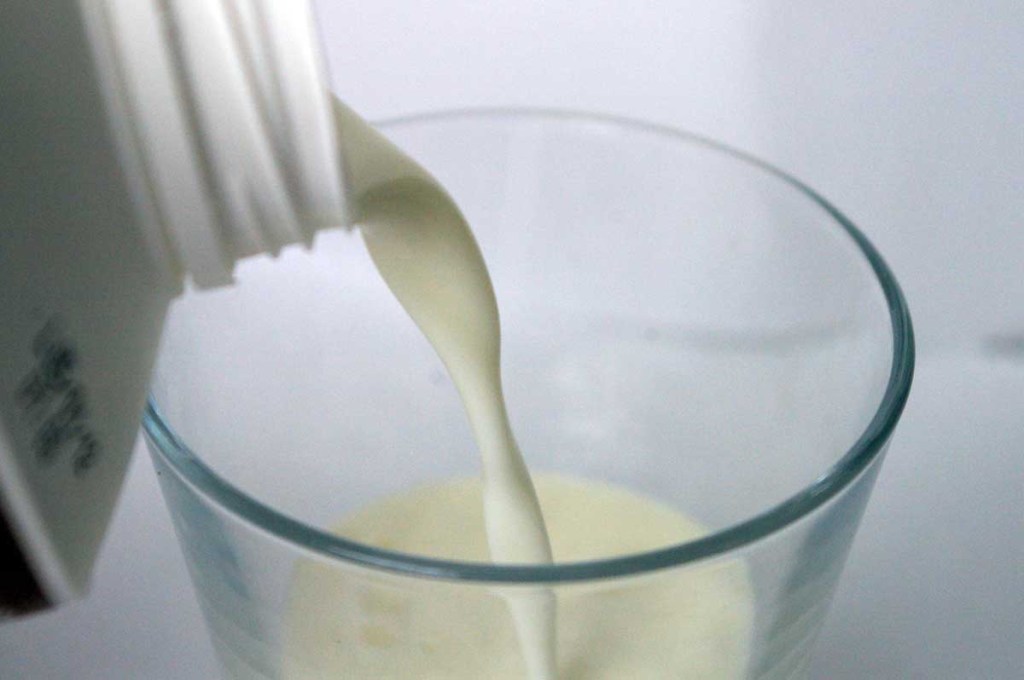Feds urged to settle feud over what constitutes milk
Published 6:08 pm Tuesday, August 22, 2017

- Milk
WASHINGTON — Marilyn Hershey hates it when asked if she prefers almond milk in her latte at a coffee shop in Chester County, Pennsylvania.
“Absolutely not,” she replies. “Sometimes, they’ll get a sermon about why I want whole milk.”
Her objection is home grown. Hershey is a fourth-generation dairy farmer, whose milk product comes from the udders of cows, not plants or nuts. And she wants it to stay that way.
Yet coffee shops, supermarkets and other outlets increasingly feature cow milk alternatives made with extracts of almond, soybean, coconut, rice and other plant-based products.
America’s dairy farmers want the U.S. Food and Drug Administration to step in and stop what they call misuse of the word milk by alternatives. They argue too many consumers falsely believe they are buying real milk and its nutrients.
“More imitators want to use milk’s good name” to sell their product, complained Chris Galen, spokesman for the National Milk Producers Federation, adding that alternatives deliberately sow confusion.
“Why else would they sell it as milk?” he asked.
Hersey agreed. She said she meets people who think almond milk is almond-flavored cow milk.
The federal Food Standards Code defines milk as “the mammary secretion of milking animals.” But the code and the FDA also allow non-animal products to use the term as long as the derivative of their alternative milk is clear to consumers. That includes pointing out that the main ingredient is filtered water.
Members of Congress from dairy states have weighed in on the long-running feud over what constitutes milk in America.
Republican Congressmen Tom Marino and John Kato of Pennsylvania, and GOP Congresswoman Elise Stefanik from upstate New York have urged the FDA to strictly enforce the definition of milk and crack down on the alternatives. .
Michigan Democratic senators Debbie Stabenow and Gary Peter are co-sponsors of a bill introduced by Sen. Tammy Baldwin, D-Wisc., making it illegal to describe a product as milk if it does not come from a “hooved animal.”
The result is a conflict that pits the dairy industry against the plant-based milk industry, which generated $1.4 billion in sales last year, according to the U.S. Department of Agriculture.
They content it is ridiculous to say they’re confusing consumers into thinking soymilk or almond milk comes from cows, pointing to their labels describe the percentage of extract and filtered water in alternative products. They also say Americans want non-dairy choices for health and humane reasons.
People buy those products precisely because they’re lactose intolerant, are gluten-free or are simply looking for an alternative to real milk, said John Cox, executive director of the Soyfoods Association of North America.
In a letter opposing Baldwin’s bill, the association told Senate leaders it surveyed 814 grocery shoppers last year, and not one thought soy mile contained cow milk. Three-fourths of the respondents offered that the main ingredient in soy milk is soybeans.
Producers should be able to use the term milk to let customers know it can be added to cereal or in coffee in the same way regular milk can, said Jessica Almy, policy director for the nonprofit Good Food Institute.
The institute works with startups creating new plant-based substitutes to meat and dairy products for environmental and health reasons.
Barring companies from using the word milk, would violate their free speech rights, the institute wrote the FDA. And, it added, if the agency rules against alternative milk producers, a lawsuit could well challenge the decision.
For the dairy industry, the debate is critical to survival as milk is no longer a staple of most meals. Americans are drinking 37 percent less cow milk than they did in 1970, according to Agriculture Department data.
“People used to drink milk when they sat down at dinner, but now they go get fast food or Subway,” said Jayne Sebright, executive director of the Center for Dairy Excellence, an advocacy group for Pennsylvania’s dairy industry.
To compete with beverages like sports drinks, dairy companies are creating milk fortified with proteins, and introducing new bottles that keep milk colder longer, she said.
Contact Washington reporter Kery Murakami at kmurakami@cnhi.com.



